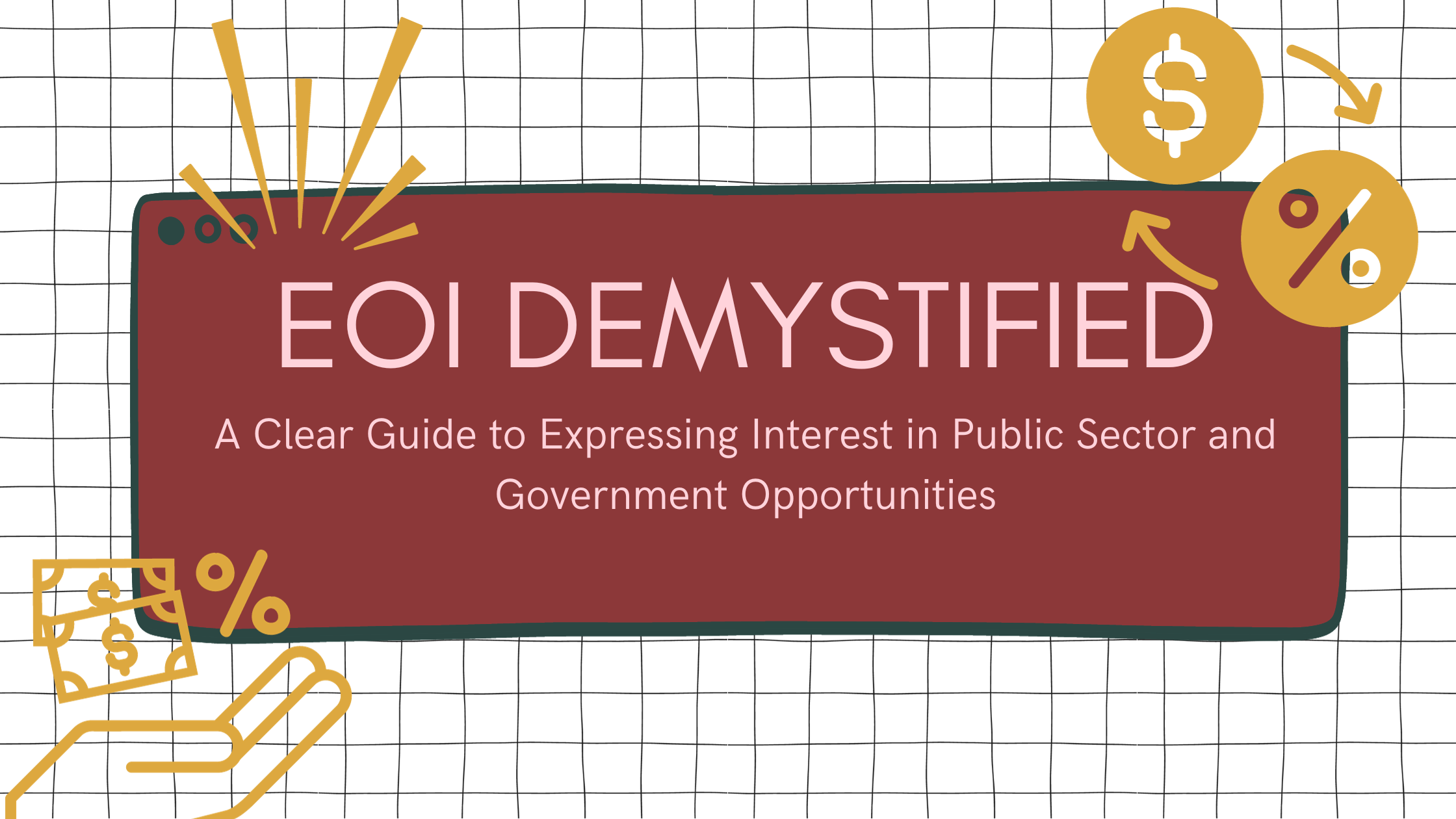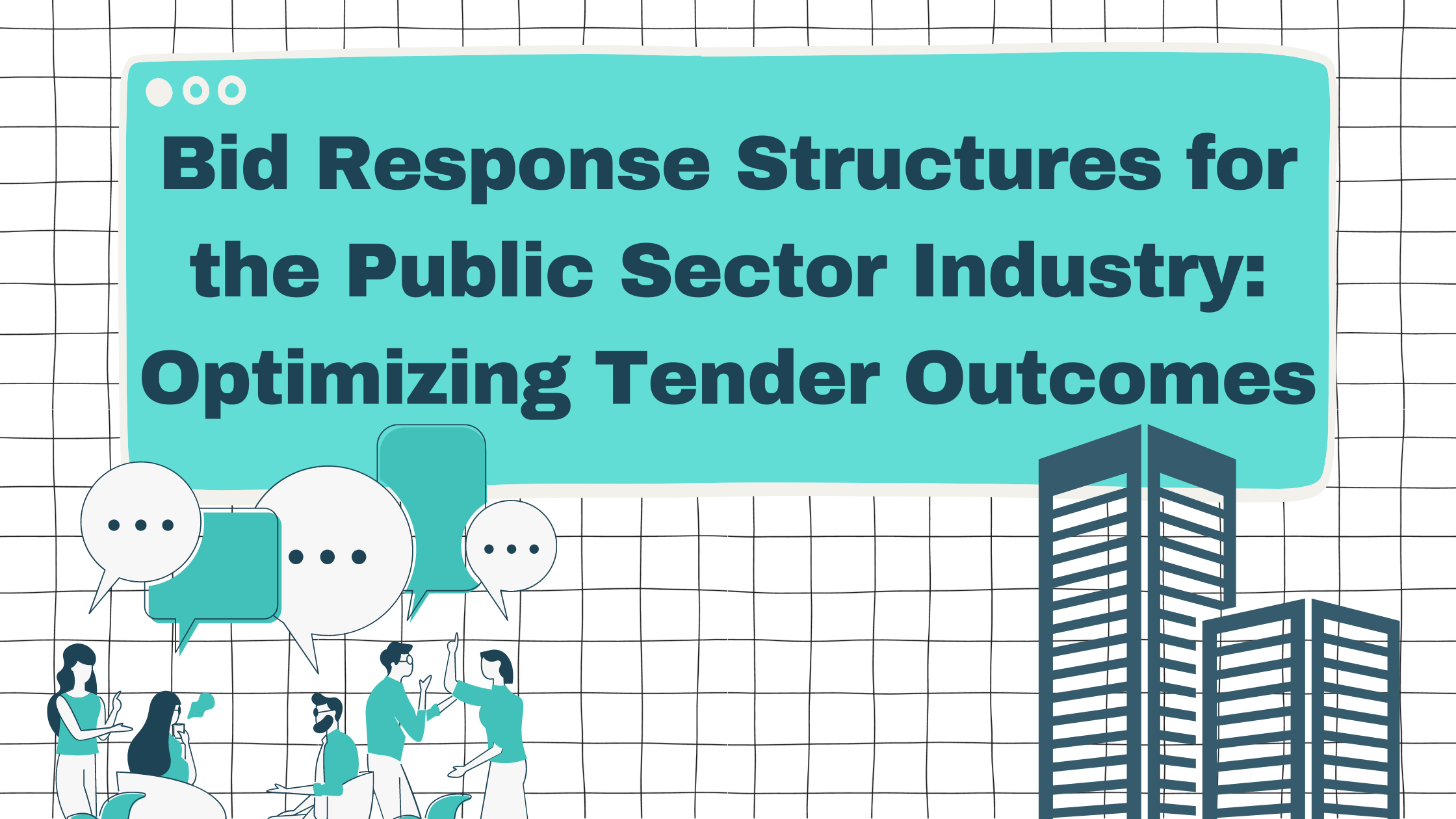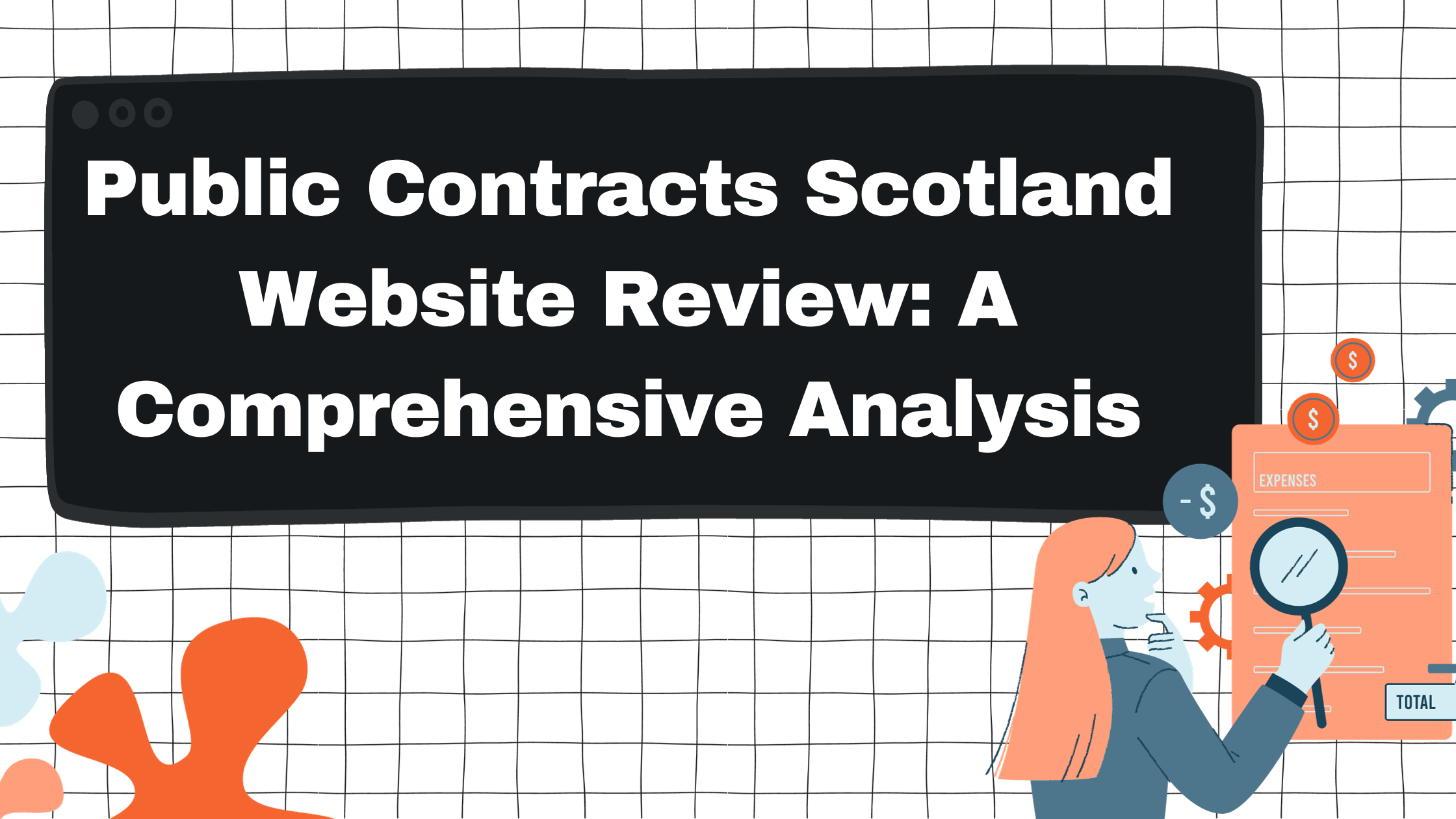Proposal and RFP Writing Services: Expert Tips for Success

Need Help with Your Bid?
Get in touch by filling out the form and one of our advisors will be in contact.
Contact UsBid Writer Interview Preparation: Tips for Success
Preparing for an interview as a bid writer demands a clear understanding of the job and the ability to convey your skills effectively. As a critical role that involves preparing and submitting proposals to win contracts, knowledge of a bid writer's responsibilities and the types of opportunities you'll be seeking on behalf of the company is essential. It's crucial to articulate not only your past successes in the field but also to demonstrate how your skills align with the company's needs.

Good preparation goes beyond reviewing the job description. Understanding the company you are interviewing with and how they operate can set you apart. Demonstrating your process for identifying relevant data and your success in winning bids shows a potential employer that you're thorough and results-driven. However, it's not just about past successes; your ability to present yourself confidently and respond effectively to questions can turn the interview in your favor.
Key Takeaways
- Understand the full scope of a bid writer's role and align your experiences accordingly.
- Demonstrating thorough research and preparation can distinguish you among candidates.
- Present personal successes and readiness for the specific company's opportunities.
Understanding the Role and Responsibilities
To excel in a bid writer interview, you need a firm grasp on both the core duties of the role and the specific expectations your potential employer may have. Mastery of these facets will demonstrate your readiness to produce compelling proposals and contribute to the team’s success.
Core Duties of a Bid Writer
As a bid writer, your primary mission is to prepare proposals that outline how your organisation can fulfill the requirements of a contract. Your day-to-day responsibilities include:
- Researching and understanding client needs: This is critical to tailor your bids appropriately.
- Gathering information: You'll work closely with your team to compile all necessary data.
- Writing clear and persuasive proposals: Your ability to convey complex information concisely is vital.
- Proofreading and editing: Ensuring documents are flawless before submission.
- Adhering to submission deadlines: Time management is crucial, as bids are often time-sensitive.
Your job isn't just about writing; it also encompasses strategic thinking and meticulous attention to detail when crafting your argument. Your skills in analysis, communication, and organisation are in constant use.
Expectations of the Employer
Employers typically seek a bid writer who not only has the necessary experience but can also align with their management style and leadership philosophy. Some common employer expectations might include:
- Capacity to work under pressure: Bidding opportunities often come with tight deadlines and high stakes.
- An ability to understand and articulate the unique selling propositions of the contractor.
- Flexibility in collaboration: You'll need to adapt to various team dynamics and contributions.
- Initiative: Employers value bid writers who proactively seek out opportunities for improvement.
- A demonstration of strategic thinking: Balancing the needs of the organisation with the specifics of the contract.
By understanding these key responsibilities and expectations, you are positioning yourself as a knowledgeable and valuable candidate capable of contributing significantly to the success of the organisation.
Research and Preparation
Effective interview preparation for a bid writer position involves a deep dive into the company you're interviewing with, a thorough understanding of the job role and the skills required, and an appreciation for the tender process. This preparation ensures you can confidently display your expertise and alignment with the company's values and needs.
Company Background and Culture
Before walking into the interview room, you must have a firm grasp of the company's background. Start by visiting the company's website and reading about their history, mission, services, and client base. Note any recent achievements or news articles, as these can be great talking points. Understanding the company's culture is just as critical; look for the 'About Us' and 'Careers' sections, where companies often highlight their values and work environment.
Analyzing the Job and Person Specification
To tailor your responses to the job specification, dissect the job description line by line. Create a table with two columns where you list the required skills and experience on one side, and your corresponding qualifications on the other side.
Job RequirementsYour QualificationsSpecific SkillHow you've demonstrated this skill in past rolesYears of ExperienceYour years in the industry and relevant rolesEducational BackgroundYour relevant educational achievements
Checking off these requirements against your portfolio and knowledge demonstrates your suitability for the role and how your experiences align with the job's demands.
Understanding the Tender Process
Your attitude towards understanding and executing the tender process is paramount. Review your successes in bid writing and how these relate to stages of the tender process from research and planning to writing and review. Demonstrating an understanding of this pipeline shows you're well equipped to handle the role's responsibilities. Being familiar with preparation techniques and how to interpret tender documents means you can effectively meet or exceed the company's expectations.
Remember, your research and preparation are the bedrock of your confidence and performance during the interview, reflecting your professional attitude and aptitude for the bid writer position.
Mastering the Interview
To excel in a bid writer interview, focus on delivering concise answers to interview questions, showcasing your relevant skills and experience, and discussing your previous successes and portfolio with confidence.
Types of Interview Questions
When preparing for your interview, anticipate a variety of interview questions that assess not only your qualifications and technical information regarding bid writing but also your personality, enthusiasm, and teamwork abilities. Questions may include:
- What is your approach to identifying bid opportunities?
- Can you describe your process for gathering necessary data for a bid?
Expect to be asked about your track record with successful bids, which demonstrate your expertise and ability to deliver results.
Showcasing Your Skills and Experience
Your skills and experience are vital in bid writing; hence, present them effectively. Your CV should highlight your communication skills and adaptability, which are essential in this role. Use examples to show your ability to work well under pressure and your strengths in collaboration. Don't forget to display body language and eye contact that exude confidence during the interview.
Discussing Past Success and Portfolio
Share evidence of past success in bid writing through a well-organized portfolio. Discuss specific examples which showcase your ability to produce winning bids. This shows interviewers a tangible track record of your capabilities. Be prepared to discuss your role in these successes authentically—be yourself—as your unique approach to challenges may set you apart.
Presenting Yourself as the Ideal Candidate
When aiming to be the standout applicant, it's crucial to demonstrate distinct competencies in effective communication, building interviewer rapport, and a strong alignment with the company's ethos.
Effective Communication and Presentation Skills
To excel in a bid writer interview, your communication and presentation skills must be impeccable. Remember, your ability to convey complex ideas succinctly and persuasively reflects your potential performance on the job. Practice a clear elevator pitch that highlights your major achievements and the benefits you bring to the table. Ensure you're prepared to discuss your approach in a structured and confident manner.
- Key Points:
- Articulate your thoughts clearly and concisely.
- Use bullet points to organize your success stories.
Building Relationships with the Interviewer
Creating a genuine connection with your interviewer is as pivotal as your technical skills. Start with a strong first impression: a firm handshake and eye contact. Throughout the interview, demonstrate client focus by addressing the interviewer's questions with relevant experiences, showing how you've built and maintained professional relationships in past roles.
- Interpersonal Actions:
- Listen actively and respond thoughtfully.
- Engage by asking insightful questions about team dynamics and culture.
Aligning with the Company's Values and Goals
Research the company’s values and goals to convincingly intertwine them with your career aspirations. Discuss your personal development plans and how they complement the company's direction. Express enthusiasm for contributing to the company's mission and relate past experiences where your values advanced an employer’s objectives.
- Strategies:
- Integrate the company’s core values into your responses.
- Relate personal success stories to the company’s objectives.
Closing the Interview and Following Up
The final moments of your interview and the actions you take immediately after are your opportunity to reinforce your candidacy and set the stage for a successful outcome. This is the time to solidify the positive impression you've built and to clarify your next steps in the recruitment process.
Leaving a Lasting Impression
As your interview concludes, it's crucial to express gratitude for the opportunity with a firm handshake and maintain eye contact. These gestures show confidence and respect. Share a brief statement that reaffirms your enthusiasm for the role, your fit for the company, and your ability to deliver results-oriented success. It's these final moments that often linger in the minds of interviewers, so ensure your departure reflects the impact and influence you intend to have in the role.
The Importance of Asking Questions
Before the interview wraps up, taking the initiative to ask questions demonstrates your leadership and self-management capabilities, as well as your genuine interest in the position. Inquire about aspects like resource management and developing others, which can showcase your strategic thinking and commitment to growth. Consider questions that can give you insight into the company's values and expectations, such as their criteria for success in the role.
Next Steps After the Interview
Understanding the timeframe and procedure for the next steps in the hiring process is key to managing your expectations and maintaining pressure. Ask your interviewer or recruitment consultant when you can expect to hear back and if they require any additional information from you. Clarify any discussions regarding salary or start dates, and confirm the best way to follow up. Finally, send a thank you email or note, reiterating your interest and summarizing why you believe you're the right choice for the position.
Frequently Asked Questions
Before heading into a bid writer interview, it's vital to know what questions you may face and how best to respond. This demonstrates your expertise and readiness for the role.
What specific skills and experiences should I highlight during a bid writer interview?
You should emphasize your ability to research and understand complex documents, write persuasively, and manage projects efficiently. Drawing attention to your past wins and the strategies you used to secure bids can set you apart.
How can I effectively demonstrate my understanding of the bid process in an interview setting?
Showcase your knowledge of the complete bid cycle, from identifying opportunities to submission. You can reference your strategies for collecting relevant data effectively and tailoring responses to align with the potential client’s needs.
What are the most important qualities of a successful proposal writer?
Highlight your analytical skills, attention to detail, and ability to communicate complex ideas clearly. Discuss your strengths in managing multiple bids simultaneously and staying updated with industry standards.
Can you provide examples of how to handle challenging scenarios during the bid management process in an interview?
Be prepared with specific scenarios that demonstrate problem-solving skills, such as tight deadlines or changing client requirements, and how you navigated these challenges successfully.
What type of writing samples should I present for a bid writer position to showcase my expertise?
Select samples that reflect a variety of bids you've worked on, illustrating the breadth of your skills and the depth of your industry knowledge. Ensure that these samples convey your ability to write concisely and persuasively.
How would I address questions about my ability to meet tight deadlines and work collaboratively in a bid writer interview?
Discuss your time management skills and experience working with cross-functional teams. Explain how you prioritize tasks and collaborate with stakeholders to deliver high-quality bids on schedule.
Ready to start your search?
Get in touch by filling out the form to the right and one of our advisors will curate a personalised selection for you.
Get in touchBlogs. Guides. Helpful advice.

Mastering Proposal and RFP Writing for Government and Public Sector Opportunities

Proposal and RFP Writing Services: Enhancing Public Sector Tender Outcomes

.svg)